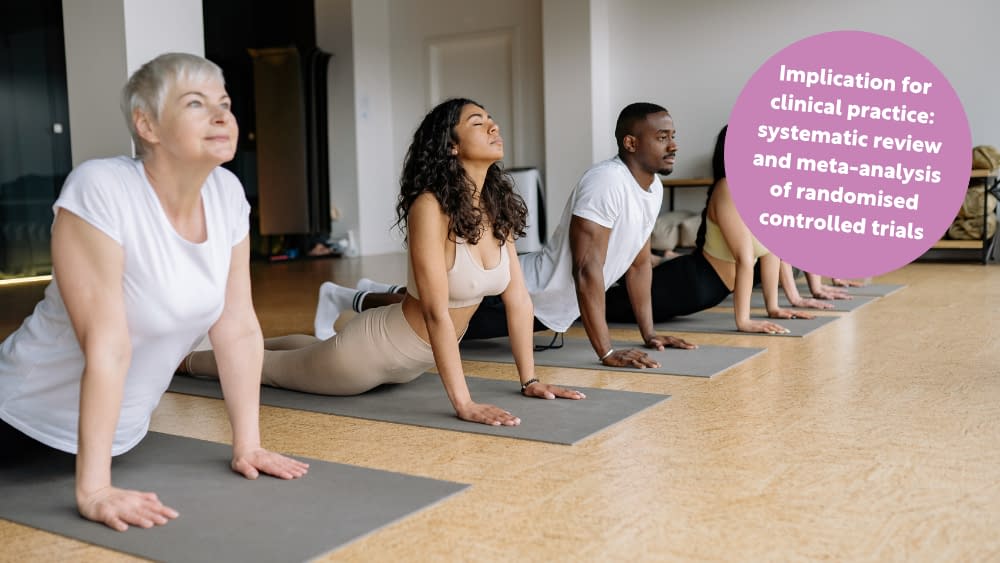Supervised group-based exercise should be considered a preferred strategy for improving psychological well-being and physical function.
Home-based exercise, while less effective than group-based, is still more beneficial than no intervention, particularly for depression.
Greater attention to adherence, standardised exercise protocols, and inclusion of aerobic components is recommended in future interventions.
Context
Primary objective: To determine the effectiveness of group versus home-based exercise interventions on psychological outcomes (depression, anxiety, and mental health) in individuals with AS.
Secondary objective: To identify the mode, frequency, intensity, time, and type of exercise most beneficial to psychological outcomes.
Methods
RCTs involving adults with AS comparing group- or home-based exercise with each other or with control conditions were included.
Depression, anxiety, mental health, and other psychological metrics were assessed as outcomes using standardised scales like Beck’s Depression Inventory (BDI) and Hospital anxiety depression score (HADS) and short form survey (sf-36).
Results
5 RCTs involving 240 participants were included
Depression: Group-based exercise showed greater improvement in depression than home-based at 6 weeks and 3 months.
Anxiety: One study found a clinically relevant improvement in anxiety with group-based exercise.
Mental health: One study showed a clinically significant improvement in SF-36 mental health scores with group-based exercise with a percentage difference of 20%.
Physical function: Group-based exercise improved physical function more than home-based exercise.
Spinal mobility and disease activity: No clear improvements with mobility or disease activity was found.
Limited adherence data and variability in exercise components reduced certainty and clarity regarding optimal protocols.




